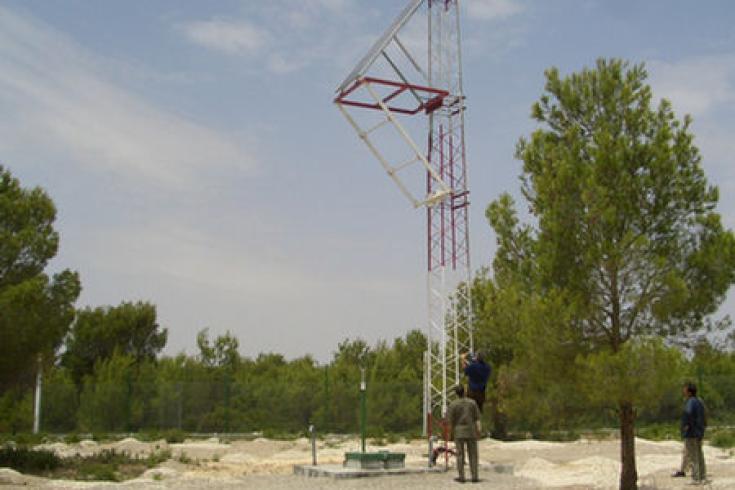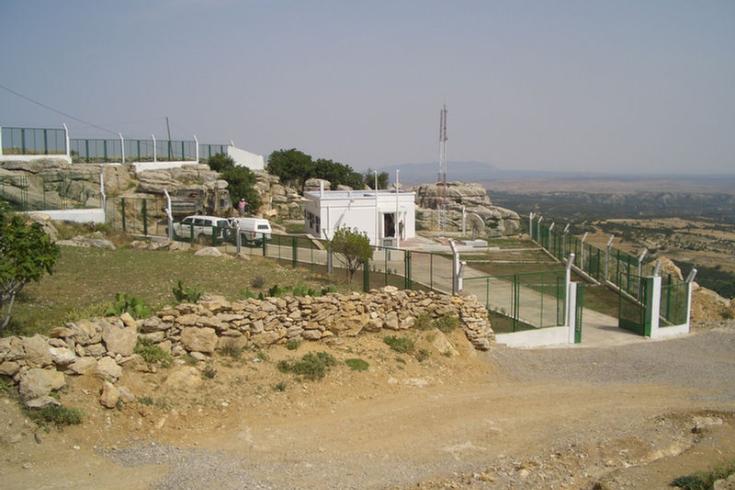Interview with Tunisian
Ambassador Samir Koubaa
Ambassador Samir Koubaa
World status of Facility Agreements - click for more.
We are fully engaged in the fulfillment of our commitment to upgrade and properly maintain our IMS stations and we are also committed to supporting the work of the CTBTO. We are sincerely looking forward to the entry into force of the Treaty.
After the signing ceremony, Ambassador Koubaa spoke to Annika Thunborg, CTBTO Spokesperson and Chief of Public Information, about the significance of the Facility Agreement and his country’s support for the CTBT.
Annika Thunborg: How will the conclusion of the Facility Agreement help further the collaboration between Tunisia and the CTBTO?
Ambassador Koubaa: I would like to congratulate CTBTO staff and especially Executive Secretary Ambassador Tóth for the great job they’re doing. It’s been very much appreciated and I’m very happy and honored to sign the Facility Agreement on behalf of my government.
We believe that the conclusion of this Facility Agreement will contribute to promoting a closer relationship between my country’s National Data Centre (NDC) and other NDCs in the region through the flow of information and exchange of experience and knowledge on issues related to the verification regime. Although the Tunisian NDC might be the newest of any CTBTO Member State in the region, we are gaining experience and knowledge very fast. We have great expertise and many very competent experts who are working hard and we are also gaining the required expertise to ensure the best operation and maintenance of our IMS facilities.
Ambassador Mohamed Samir Koubaa presented his credentials to CTBTO Executive Secretary Tibor Tóth on 9 July 2011.
Ambassador Koubaa: Even though we are a small country, we are very active. We are fully engaged in the fulfillment of our commitment to upgrade and properly maintain our IMS stations and we are also committed to supporting the work of the CTBTO. We are sincerely looking forward to the entry into force of the Treaty. First of all we are building up our national capacities to ensure the strengthening of our contribution to the verification regime. At the same time, we are hosting many important events. At the national level, we hosted the first NDC Development Workshop for African countries in 2008 with a record number of 23 participating countries. In 2010 we installed the capacity building equipment [at our National Data Centre] and we also organized scientific workshops such as the Infrasound Technology Workshop to promote the regular flow of information to the NDCs. And we can do more. Today I was discussing with the Executive Secretary what we can do to accelerate the CTBT’s entry into force. We are ready to host and maybe to co-organize more seminars or workshops in order to better disseminate information about the verification regime. And of course, it will also be encouraging for other countries that wish to promote the Treaty’s entry into force.

Infrasound station IS48 in Kesra, Tunisia.
Ambassador Koubaa: We’re learning fast and we have the expertise. Colonel Khemiri, the Manager of the National Data Centre, who is actually the “father” of the Facility Agreement is very well known and is extremely active not only at the national level but has also participated in all the meetings here in Vienna. We also have Mr Mechken [Legal Consultant with the CTBTO] who is very well known in Vienna and other places. We’re very proud of our experts. This is maybe one of the reasons that the big change happened in my country in January. It was the high level of education of the Tunisian people that made it happen in a very civilized way.

Primary seismic station PS42, also located at Kesra. Both Tunisian stations were certified as meeting the CTBTO's stringent quality requirements in July 2006.
We’re very proud of our experts. This is maybe one of the reasons that the big change happened in my country in January.
Ambassador Koubaa: As you know, we were the first to make happen what happened. We didn't want to export anything and didn't have the means to do so. We were so happy that things happened in my country on the basis of our own means and expertise and taking into account the specifications of my country. We just concluded a very important step successfully, which was the election of the National Assembly. Consultations are taking place to establish a coalition government in a very civilized way which takes on board all opinions and the positions of all political parties and civil society. Not only are we proud of that but we think that this could be a politically positive message.
What is taking place at the political level could also be applied at other levels - at the social and economic levels. The focus will mainly be on better governance, transparency and democracy. Those are the three pillars that will help lay the foundations for a better Tunisia and maybe also provide a first example of the success of a democratic transition. We are getting close [to achieving this] and are starting to share some of the noble objectives of democracy, better governance and transparency. It’s a long process. We won't be 100 percent democratic next month or even next year but we are learning. We’ve just entered a highway so we cannot back up but will continue and we’re determined to get there. It will be costly, painful, and sometimes difficult because social expectations are very high and insistent. But we are patient and we are confident that we can see this through to a successful end. Of course, international cooperation and support is essential. We will count mainly on our own resources even though Tunisia is not a rich country but we have the required expertise and hard workers: those are our principal ‘wealth’. We will rely on our forces first but we know that international cooperation and assistance and especially bilateral and also with international organizations is really instrumental for a successful end to this transition.
The Tunisian National Data Centre
We are very happy with the close cooperation between the CTBTO and my country – especially the Ministry of Defense.
Ambassador Koubaa: The most important thing is the document – the Facility Agreement – that we just signed. If we stop there, nothing will happen. The second thing you need is the conviction of the parties to go ahead and really make it happen. The third pillar would be concrete and effective support. Those are the three main elements to really achieve the effective implementation of activities. We knew before signing that there is a great desire on the side of the CTBTO to help and to assist us. We look forward to the continued support and further assistance from the CTBTO, not only to ensure the best implementation of our national strategy but also to put us in a situation whereby we might be able to help as well. We are very happy with the close cooperation between the CTBTO and my country – especially the Ministry of Defense. There’s also the possibility of reaching out to universities and research institutions. They could help strengthen national capacities and thereby help promote the Treaty’s entry into force. Civil society can also play a very important role.
CTBTO's Misrak Fisseha (standing) provides National Data Centre (NDC) staff in Tunisia with hands-on training in July 2010.
Ambassador Koubaa: Ambassador Tóth talked about a very important upcoming event – the Advanced Course on the CTBT – which will be video streamed and will involve the younger generation. I think this is an excellent idea - not to limit the scope of the activity to traditional partners. While they are very important as they are responsible for all the work, it’s also crucial to reach out to researchers, academicians, university professors and representative of civil society who might also be able to disseminate and bring the contributions of the traditional partners to a wider audience.
13 Dec 2011